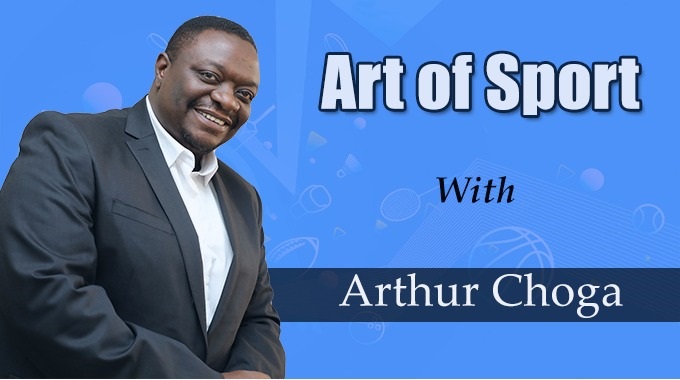
The Sunday Mail

The Art of Sport
Arthur Choga
NOW that the dust has settled on the African Cup of Nations (AFCON) tournament in Cote d’Ivoire, we can begin to look at what we can build on.
The tournament brings with it global attention, infrastructure development opportunities and a chance to unite a nation around a common theme.
Cote d’Ivoire, whose national team needed a late life-saving act by Morocco to stay in the tournament after a disastrous group stage performance, went on to win the tournament, taking a page from the previously unheralded tactics of Emerse Faé and support of the home crowd.
Here are a few takeaways from the tournament:
Local leagues can make a difference
South Africa’s Bafana Bafana got the bronze medal with a team with only three foreign-based players. Their local league shone brightly. Even though they did not make the final, their league was represented, as Nigeria’s first-choice keeper Stanley Nwabali turns out for Chippa United.
In fact, the two SA-based goalkeepers were the pick of the crop, with South African Ronwen Williams winning the Golden Glove award.
The team had 11 players from perennial champions Mamelodi Sundowns.
Interestingly, there was no player from traditional powerhouse Kaizer Chiefs.
Orlando Pirates had four players in the squad, Supersport United had two, while Amazulu, Stellenbosch, Sekhukhune and Polokwane City had one player each.
Only Percy Tau (Al Ahly, Egypt), Mihlali Mayambela (Aris Limassol, Cyprus) and Sphephelo Sithole (Tondela, Portugal) are based outside South Africa.
This tournament showed that the investment they have made and their determination to grow their brand of football have begun to pay off.
It is not surprising that Mamelodi Sundowns are the club leading this new-look Bafana Bafana.
The traditional giants of South African football have not been able to match the drive, innovation and focus that Sundowns have demonstrated over the past couple of years.
However, Sundowns’ success has lifted the league’s strength by driving other teams into strengthening their squads.
When Egypt dominated the AFCON from 2006 to 2010, they built their success largely on local-based players.
In 2006, they only had three foreign-based players, with Al Ahly providing nine players and Zamalek six. In 2008, they had seven foreign-based players and in 2010 they had four.
Hosting has its benefits
Cote d’Ivoire were almost out of the tournament. They had been dismantled 4-0 by Equatorial Guinea in the group stages and had resigned themselves to their fate with only three points from three games.
They even sacked their coach Jean-Louis Gasset and were getting ready to have an inquest into their national game.
However, their fortunes changed, courtesy of Morocco’s win over Zambia, which opened the door for the hosts to stay in the tournament as the pick of the third-placed teams.
The home fans cheered Morocco wildly and proceeded to back their team as they marched past powerhouses and defending champions Senegal, Mali, the Democratic Republic of Congo and a rematch with Nigeria, who had beaten them 1-0 in their Group A clash.
The fans were immense.
Sometimes the solution is right before your eyes. Emerse Faé was capped 41 times by Cote d’Ivoire after making a decision to switch nationality from France, where he was born and whose junior national teams he represented, including winning the Under-17 World Cup with them in 2001.
As a teenager, Faé played football for the French U-17 and U-21 teams.
After FIFA passed a rule that allowed players to change nationality if they had not played for a senior national team in a competitive game, Faé opted to play for the country where his parents were born.
He featured for the Elephants at the 2006 African Cup of Nations and the 2006 FIFA World Cup. He played at the 2008 and 2010 Africa Cup of Nations. He retired from football at the age of 28 amid heath concerns and turned to coaching.
His coaching CV is now glowing.
When you consider the success of Senegal’s Aliou Cisse and Morocco’s Walid Regragui, then it makes a lot of sense for national teams to begin developing former players to lead national teams.
After all, they already understand the players’ language, culture and aspirations.
We surely cannot afford to be left behind.
Samuel Eto’o is trying to bring success through his personal charisma, seemingly without addressing the root ills of the Cameroonian game, including the fact that his former captain and teammate Rigobert Song clearly looks out of his depth.
Senegal have had a good run with Aliou Cisse, but it may be time to change tack.
History is good, but in sports, it can be costly.
Nigeria have had to make many changes to the way they play and the way they are set up.
South Africa has ditched the fancy-pants football they valued for so long and adopted a more practical approach, and it almost took them to the final.
Former Warriors player George Mbwando shared a brilliant piece about Mauritanian football, having travelled there as a player, where he experienced the worst of conditions.
He was juxtaposing his experiences at that time with the growth and performance of Mauritania at this year’s AFCON, where they knocked out former champions Algeria after a 1-0 win and qualified for the knockout stages.
It did not happen by chance and it will also not happen for us by chance.
We must very clearly define our goals and set about chasing them down with the single-mindedness of apex predators.
That way, we will keep in touch with our regional neighbours and nations that we used to send to clean our football boots.
Feedback: [email protected]




